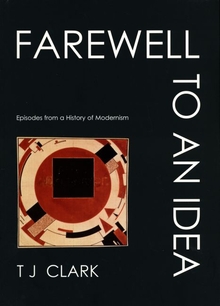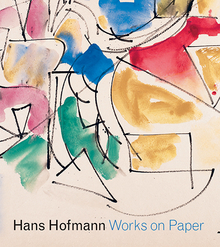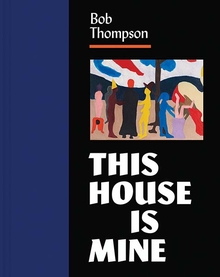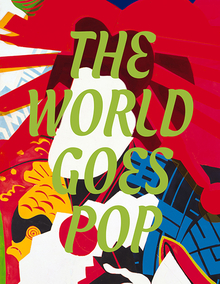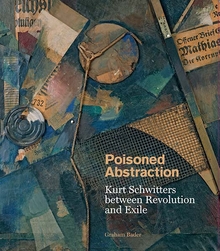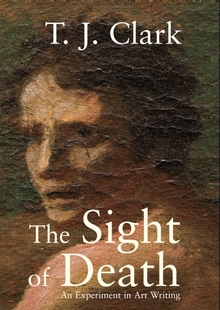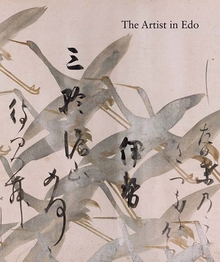Farewell to an Idea
WARNING
You are viewing an older version of the Yalebooks website. Please visit out new website with more updated information and a better user experience: https://www.yalebooks.com
Episodes from a History of Modernism
T. J. Clark

Read this book online via the A&AePortal, our art and architectural history eBook platform. To learn more about how to access this book, please contact us.
In this intense, far-reaching, and poignant book—a book that sums up the work of a lifetime—the acclaimed art historian T. J. Clark rewrites the history of modern art. With the fall of the Berlin Wall, he explains, the project called socialism may have come to an end at roughly the same moment as modernism. Did modernism and socialism depend on each other for their vitality—for their sense of the future and their wish to live in a fully material world? Have they died? Aware of modernism’s foibles and blind spots, but passionately attached to the movement’s wildness, Clark poses these fundamental questions in Farewell to an Idea.
Modernism, Clark argues, was an extreme answer to an extreme condition—the one Max Weber summed up as “the disenchantment of the world.” Clark focuses on instances of maximum stress, when the movement revealed its true nature. The book begins with Jacques-Louis David, painting at the height of the Terror in 1793, then leaps forward to Pissarro a hundred years later, struggling to picture Two Young Peasant Women ina way that agreed with his anarchist politics. Next the author turns in succession to Cézanne’s paintings of the Grandes Baigneuses and their coincidence in time (and maybe intention) with Freud’s launching of psychoanalysis; to Picasso’s Cubism; and to avant-garde art after the Russian Revolution. Clark concludes with a reading of Jackson Pollock’s tragic version of abstraction and suggests a new set of terms to describe avant-garde art—perhaps in its final flowering—in America after 1945. Shifting between broad, speculative history and intense analysis of specific works, Clark not only transfigures our usual understanding of modern art, he also launches a new set of proposals about modernity itself.
Modernism, Clark argues, was an extreme answer to an extreme condition—the one Max Weber summed up as “the disenchantment of the world.” Clark focuses on instances of maximum stress, when the movement revealed its true nature. The book begins with Jacques-Louis David, painting at the height of the Terror in 1793, then leaps forward to Pissarro a hundred years later, struggling to picture Two Young Peasant Women ina way that agreed with his anarchist politics. Next the author turns in succession to Cézanne’s paintings of the Grandes Baigneuses and their coincidence in time (and maybe intention) with Freud’s launching of psychoanalysis; to Picasso’s Cubism; and to avant-garde art after the Russian Revolution. Clark concludes with a reading of Jackson Pollock’s tragic version of abstraction and suggests a new set of terms to describe avant-garde art—perhaps in its final flowering—in America after 1945. Shifting between broad, speculative history and intense analysis of specific works, Clark not only transfigures our usual understanding of modern art, he also launches a new set of proposals about modernity itself.
T. J. Clark is Chancellor’s Professor of Modern Art at the University of California, Berkeley. His books include The Absolute Bourgeois: Artists and Politics in France, 1848–51; Image of the People: Gustave Courbet and the 1848 Revolution; and The Painting of Modern Life: Paris in the Art of Manet and His Followers.
"[A]lways thoughtful and often moving."—Karsten Harries, Art Bulletin
"Farewell to an Idea is an undeniably brilliant and effective book."—Stephen F. Eisenman, Art in America
"A large and ambitious book, bountiful in opinions as it is in colorplates. . . . Farewell to an Idea is an undeniably brilliant and effective book. . . . Clark offers the reader very extensive, and sometimes very evocative, formal analyses of particular paintings—especially of the classic Pollock works from 1947-50."—Stephen F. Eisenman, Art in America
"[This] book contains stunning interpretive revelations. . . . Farewell to an Idea is an undeniably brilliant and effective book."—Stephen F. Eisenman, Art in America
"[Clark is] and illustrious and insightful. . . . Make no mistake: Clark locates modernism unambiguously in a collection of cultural artifacts that actually are conjoined in some coherent manner; it is no mere analytical device imposed after the fact for the sake of making sense of those artifacts."—James D. Herbert, Art Journal
"Reanalyzes and re-interprets the modern art movement from its roots in Europe to the Abstract Expressionist school. Far-reaching and detailed, this book will surely alter much of the present scholarship and criticism on the topic."—Raymond J. Steiner, Art Times
"Farewell to an Idea is a heroic attempt, profoundly elegiac in tone, to create a vision of modernism compatible with his political sympathies. . . . There is a highly original mind at work here."—Bernard Smith, Australian’s Review of Books
"This remarkable book manages to summarize a complex century of art-making and in the process carves out an inttellectual vision of our historical isolation as we stand on the cusp of a new, unimagined century."—Dennis Reid, Canadian Art
"Without question, this is one of the more intriguing books on art history to be published this decade. . . . Written in the first person, Farewell to an Idea provides insightful commentary on such movement as Cubism and Soviet art. Indeed, the chapter discussing the work of Kasmir Malevich and his collectivist comrade El Lissitsky is particularly enlightening, while the work selected to illustrate the chapter is a beautiful reminder of the importance of metaphor in art. . . . This book, by an author who clearly loves painting, is as enjoyable to read as one imagines it was to write."—Choice
"This is an important book, for two reasons. The first is its comprehensive overview of the two-hundred-year history of modernism in the visual arts. . . . The second is the author's fundamental thesis that the evolution of socialism . . . is inseparably linked to modernism."—James F. Cooper, Modern Age
"The most important book about art written this year."—Richard Dorment, Daily Telegraph
"[A] synthesis of three decades of Clark’s thinking and writing about modern art. . . . [This] thought-provoking work . . . is well worth the effort."—Library Journal
"The most important book on literary modernism in the last year was produced not by a literary critic but by an art historian. T.J. Clark’s Farewell to an Idea: Episodes From a History of Modernism rewrites all the rules that have governed disquisitions on modernism."—Lawrence Rainey, Lingua Franca
"[This] book is exhilarating to read because, like everything of Clark’s, it is clearly, almost seductively, written. What is more, it is shot through with his passion for the pictures he has chosen to consider."—Joseph Rykwert, Los Angeles Times Book Review
"Clearly the best book ever written on modernism. . . . Clark is the best reader of difficult paintings that I have encountered. And his dense, scrupulous scholarship elaborates a powerful, intensely engaged meditation. . . . .In my view one simply cannot go on doing modernist studies without fully engaging both Clark’s arguments and the passionate, anarchic utopianism that pervades the book."—Charles Altieri, Modernism/Modernity
"Clark digs holes under the ramparts of conventional art history. . . . His book challenges—he hopes it refutes—nearly every feature of the prevailing histories of modernist art."—Robert Herbert, New York Review of Books
"The essays in this volume are always historically nuanced, aglow with Clark’s deep learning and masterful prose; they will doubtlessly elicit much praise and be the subject of much debate."—Publishers Weekly
"Clark’s most impressive book to date. . . . With Farewell to an Idea, Clark joins modernism’s truest spokesmen and critics: Clement Greenberg, Meyer Schapiro, Leo Steinberg. . . . In explosive intellectual impact his work is without peer.”—Kenneth Baker, San Francisco Chronicle/Examiner
"[This] book offers a subtle exploration of the relation between politics and culture over the past two centuries, and in particular of the ways in which Modernism was sustained by its related fin-de-siecle casualty—socialism."—John Adamson, Sunday Telegraph
"An elegy to the complex movement that has dominated painting and sculpture for more than a century, and it is as passionate and provocative as any of his previous publications."—Frank Whitford, Sunday Times
"Farewell to an Idea is an art history like no other, both in terms of conception and the amazing quality of reproduction."—Tariq Ali, The Times
"A monumental slab, an embattled fortress of the mind, Farewell to an Idea is a book whose weight and scope seem to alter the whole geography of art writing."—Julian Bell, Times Literary Supplement
"With originality and impressive breadth, Clark examines modernism as a historical phenomenon. . . . Lucidly written, Clark is a master of contextual detail and at effortlessly moving the discussion between larger historical frameworks and the specific moments."—Virginia Quarterly
"In Farewell to an Idea, T.J. Clark winds back the clock for Modernism’s birth to Jacques-Louis David’s Death of Marat, and then brings us up to its final messy hours in Jackson Pollock’s splattered studio. . . . Clark can shift from a jeweler’s-eye critique of an individual canvas to a crows nest view of intellectual history. This is art history as electrifying as the art it describes."—Voice Literary Supplement
"[O]ne of the most far-reaching and monumental studies of modernism in recent years."—Catherine Paul
Chosen as an "Outstanding" Academic Title for 1999 Choice Magazine
ISBN: 9780300089103
Publication Date: February 8, 2001
Publication Date: February 8, 2001
460 pages, 71/2 x 11
210 b/w + 70 color illus.
210 b/w + 70 color illus.

